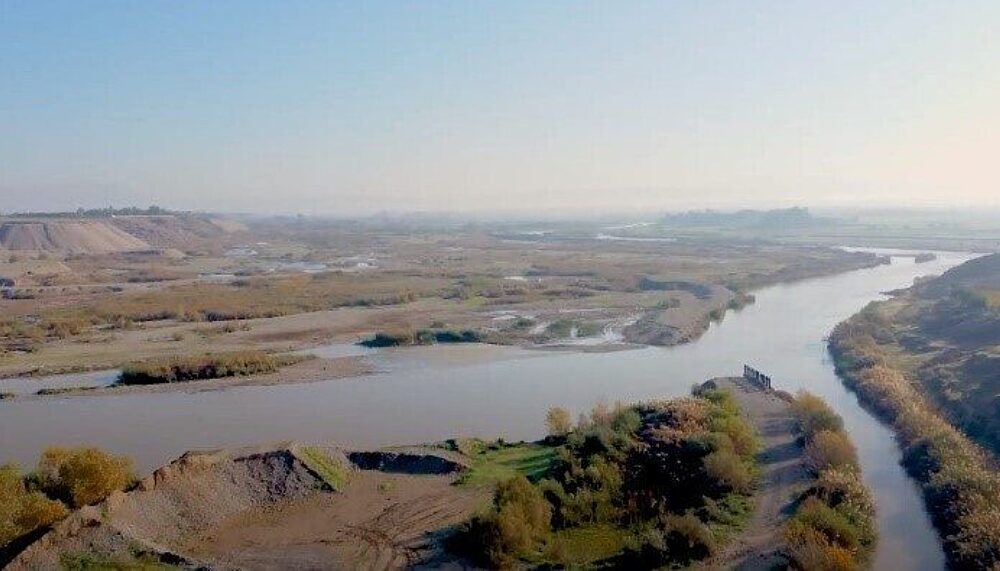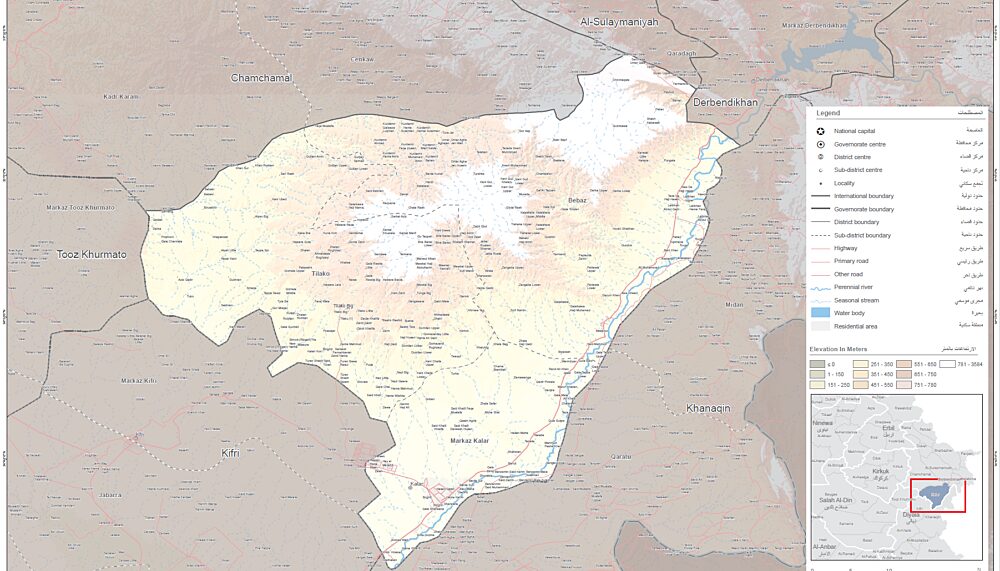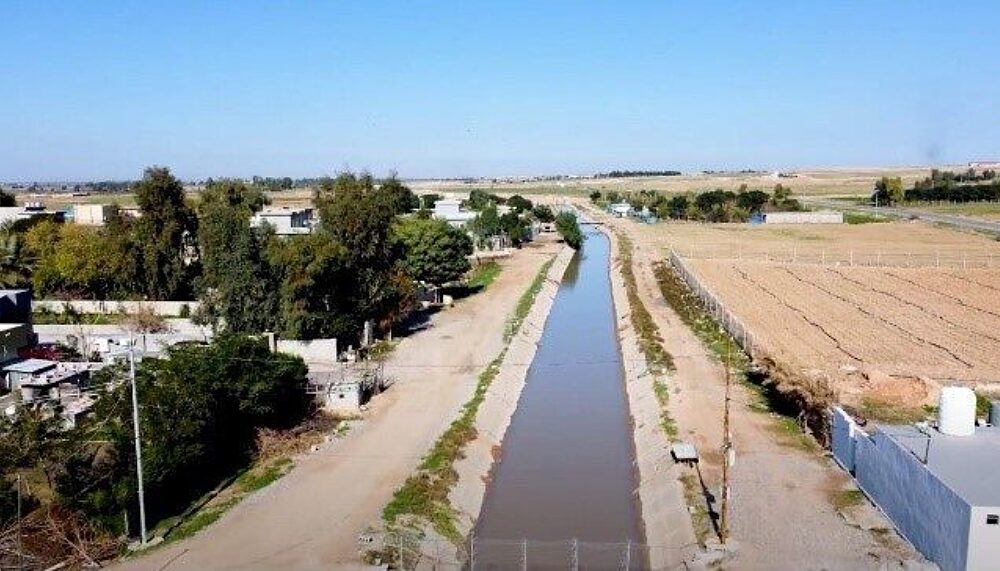STORY
Addressing environmental challenges unites divided villages in the northeast of Kurdistan, Iraq

In Iraq, the Berghof Foundation, in collaboration with its partner Peace Paradigms Organisation, is addressing disputes over water resources exacerbated by climate change through locally-led dialogues between communities and local authorities. As a result, villagers agreed on a new water-sharing agreement and two new wells were constructed, benefiting nearly 100 families – an essential step in mitigating the ongoing water crisis in Iraq.
In Kalar, a region in the northeast of Kurdistan, Iraq, (see a detailed map of the region) marked by longstanding tensions and conflicts, several villages face severe water scarcity. The Sirwan River, a transboundary river that feeds into the Diyala and subsequently the Tigris, has been impacted by dam construction and the diversion of its tributaries in Iran. For years, disputes over diminishing water resources, illegal tapping, and water allocation violations along the Bala Jo water canal exacerbated hostilities, deepened divides, and fostered mistrust. The lack of water has contributed to the displacement of people from their homes. In addition, climate change has led to more heat waves and less rainfall, further reducing water availability. Therefore, the need to reduce tensions and increase cooperation among villages along the Bala Jo water canal has become even more urgent.

Understanding one’s environmental impact
During the summer of 2023 through the end of the year, the Berghof Foundation and Peace Paradigms Organisation (PPO) brought together representatives from different community groups for a dialogue. As a first step, women, men, youth, elders, families, farmers, teachers, and tribal and religious leaders came together to share their perspectives, needs and concerns.
The water canal passes through 23 villages. With some farmers trespassing the canal and taking more water, this leaves the villages downstream without water. So, some of us do not even have drinking water.
Participant of the dialogue series in Kalar
In the beginning, convening both the downstream villagers with the least access to water and those tapping the water canal upstream was difficult. The upstream villagers expressed they couldn’t fully understand the extent of the water scarcity faced by the most affected villages. As a result, we organised a field trip to the most affected villages so they could see the situation for themselves. This step was crucial in the process, as the upstream villagers realised the impact their actions had on those further downstream, not only in terms of the misuse of water shares but also concerning pollution and littering.

Dialogues on shared environmental challenges
As a next step, the dialogue aimed to promote cooperation among the villagers to find a joint solution involving the different villages and local governmental institutions. This exchange culminated in a new water-sharing agreement that provides the framework and mechanisms to stop the illegal use of water and ensure its fair distribution.
Water is a shared responsibility. We all need to work together to preserve it by not damaging the canal and trying to eliminate excessive use of water and keeping the water of the canal clean.
Participant of the dialogue series in Kalar
The dialogue sessions enabled the participants to build trust, not only among the communities but also between the communities and government authorities. On the one hand, the government authorities were able to share their regulations and rules, helping community representatives gain a clearer understanding of the context in which the authorities operate. On the other hand, the communities could voice their concerns and challenges. In addition, the village representatives were able to open up to each other and use their shared understanding of each other’s needs to jointly identify two villages most affected by the water scarcity.
New water sources for the villages
The two wells that were constructed as a result of the water-sharing agreement now provide essential access to water for nearly 100 families. Despite existing grievances and conflicts between the villages, the well locations were unanimously agreed upon, demonstrating that dialogue can lead to cooperation and joint action. This collaboration paves the way for a more sustainable future where conflict dynamics and climate security challenges are addressed through dialogue and cooperation.
We witnessed a change in the people after the wells were constructed because they saw that we are serious and that there is an impact of what we do. It was really much needed.
Dialogue series facilitator
All of this shows that dialogue is essential for transforming and resolving conflict and for building climate and environmental resilience. Focusing on environmental concerns in peacebuilding does have a transformative effect. A common environmental challenge can become a unifying force, bringing together once-divided communities to find sustainable solutions for shared problems and resolve tensions. By addressing the water challenges as a community, the dialogue in Kalar contributed to bridging differences and uniting the villages.
Your support helps us do more
So much money is spent on war. It’s time to invest in peace. Your donation enables us to sustain and expand our work.


